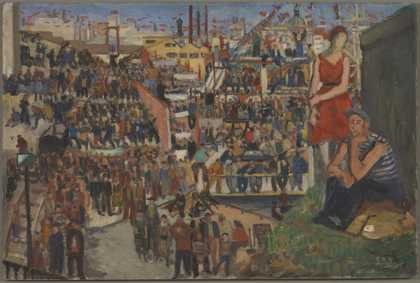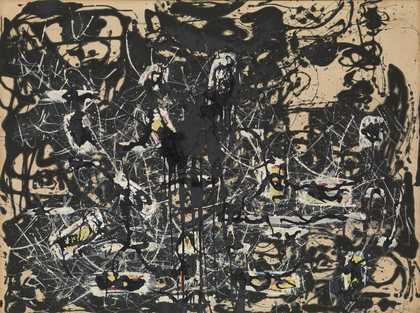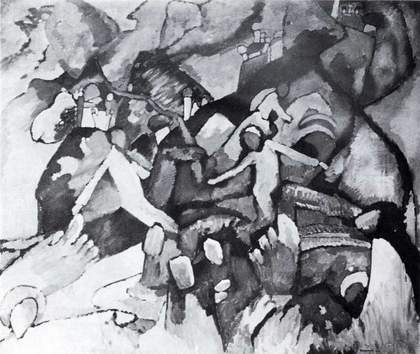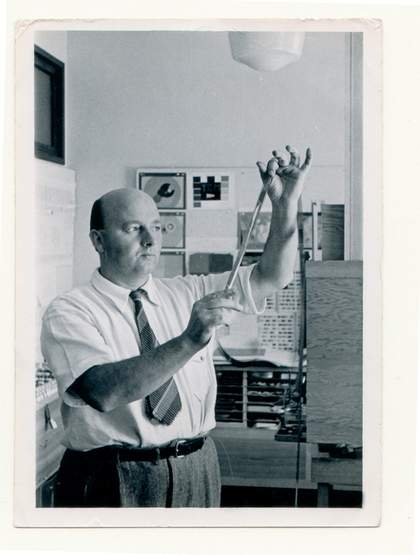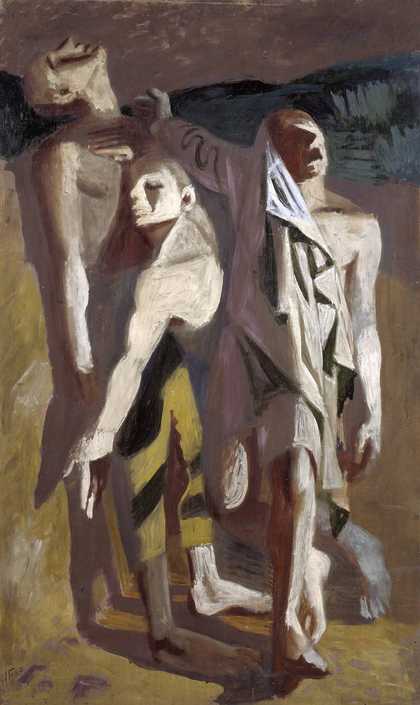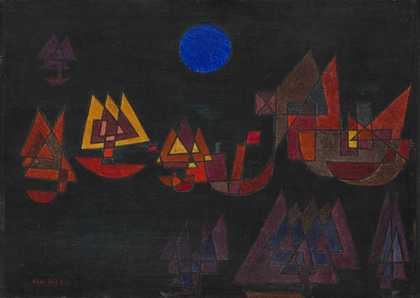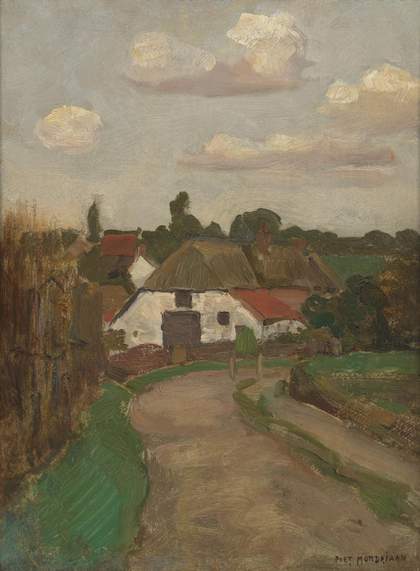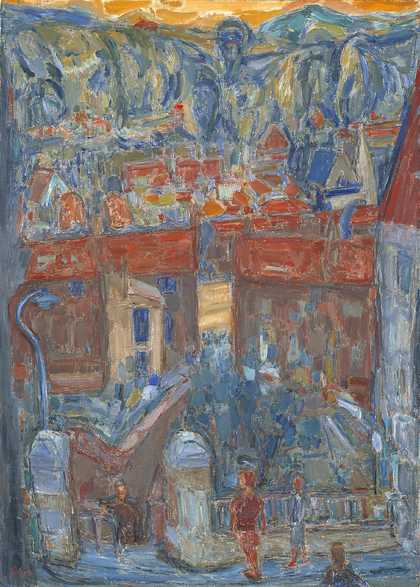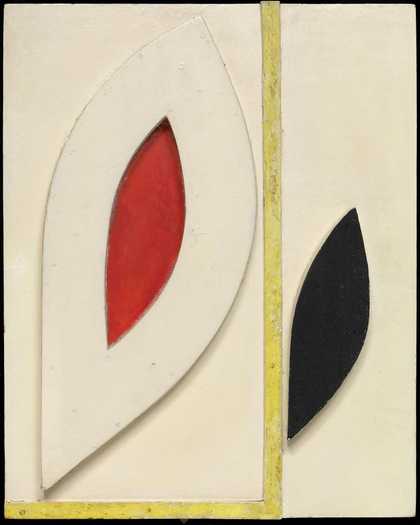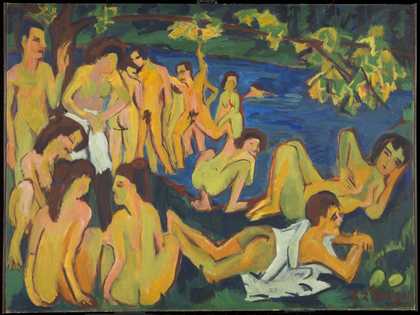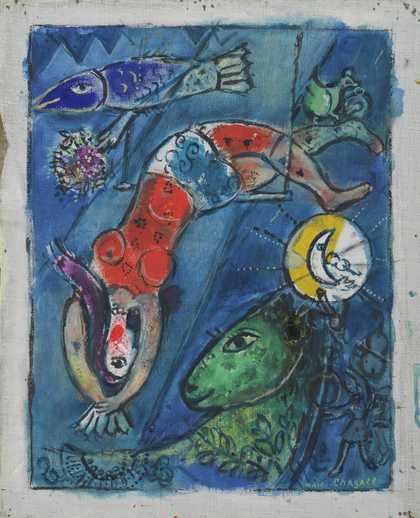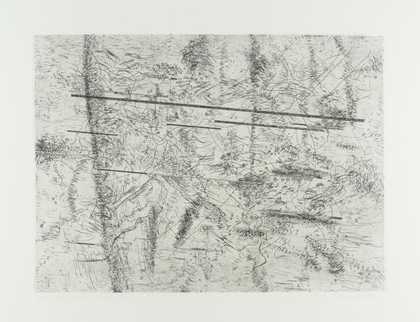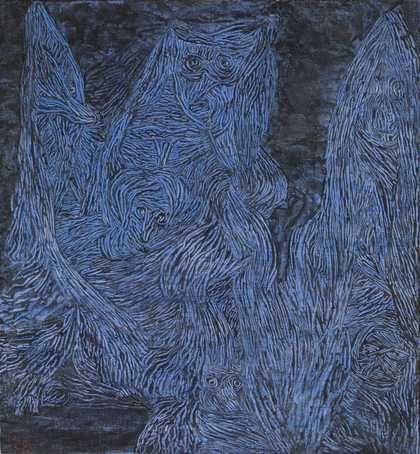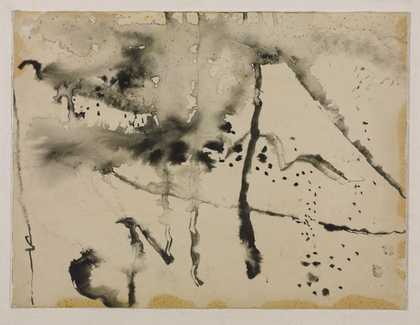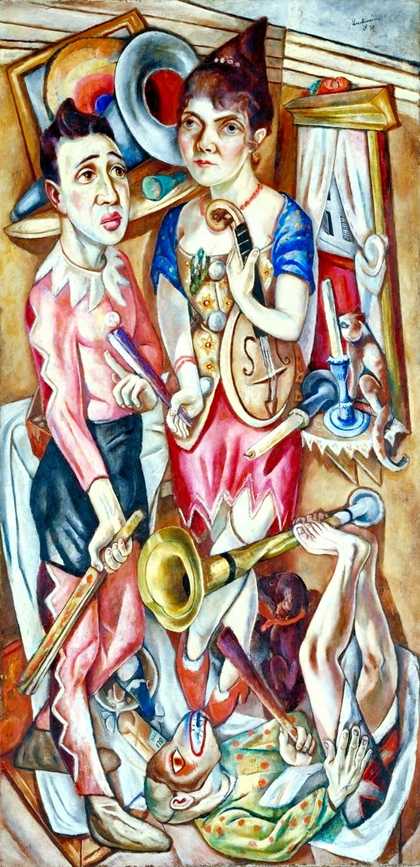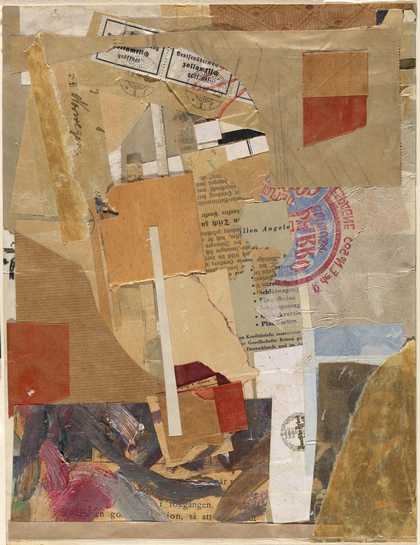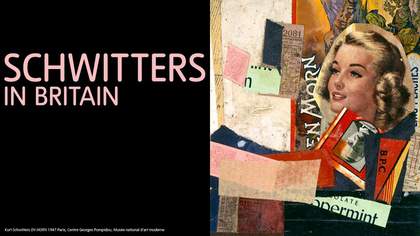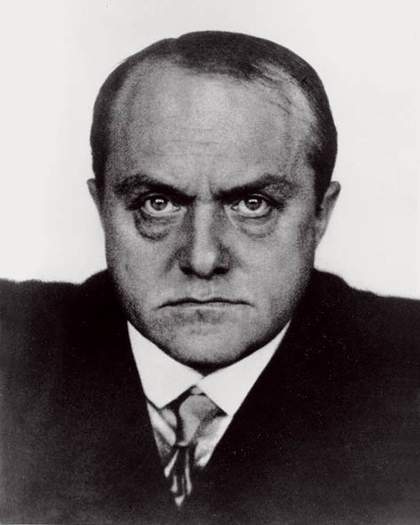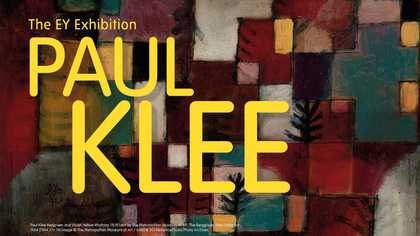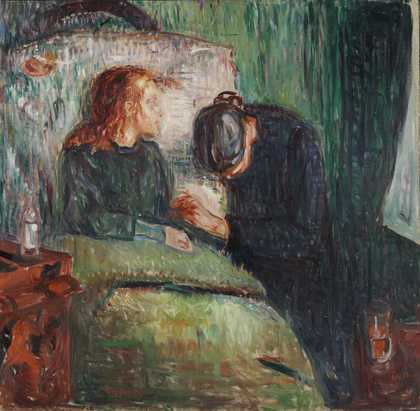
Edvard Munch
The Sick Child (1907)
Tate
All modern art was considered ‘degenerate’ by the National Socialist (Nazi) party. Expressionism was particularly singled out. In 1937, German museums were purged of modern art by the government, a total of some 15,550 works being removed. A selection of these was then put on show in Munich in an exhibition titled Entartete Kunst. This was carefully staged so as to encourage the public to mock the work. At the same time an exhibition was held of traditionally painted and sculpted work which extolled the Nazi party and Hitler’s view of the virtues of German life: ‘Kinder, Küche, Kirche’: roughly, family, home and church. Ironically, this official Nazi art was a mirror image of the socialist realism of the hated Communists.
Some of the degenerate art was sold at auction in Switzerland in 1939 and more was disposed of through private dealers. About 5,000 items were secretly burned in Berlin later that year. The Sick Child by Edvard Munch now in the Tate collection, was sold at the 1939 auction.

